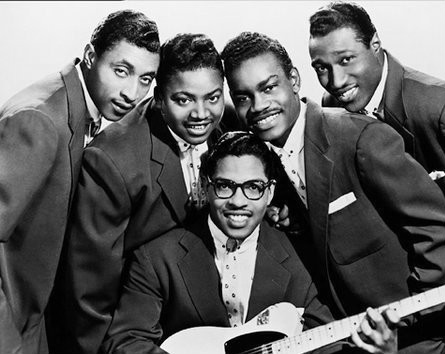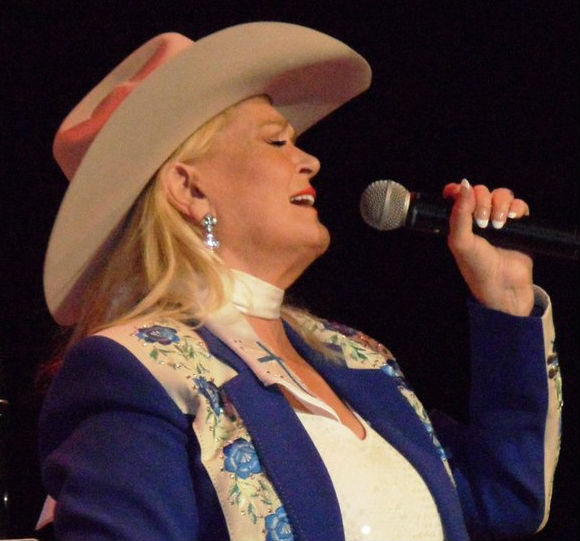|
I Gotta Know
"I Gotta Know" is a song recorded by Cliff Richard in September 1959 and Elvis Presley on 4 April 1960. The composer was Paul Evans (musician), Paul Evans; lyrics are by Matt Williams. Originally released by Presley as the B-side of "Are You Lonesome Tonight? (song)#Elvis Presley's version, Are You Lonesome Tonight?", it nevertheless reached number 20 on the US charts. It was engineered by Nashville sound pioneer Bill Porter (sound engineer), Bill Porter. The single with "I Gotta Know" on the B-side went on to be one of the biggest-selling singles of 1960, peaking at number one on the ''Billboard'' pop chart from November 28 for six weeks and peaking at number three on the R&B charts. "I Gotta Know" is a love song in G major, described as a "mild rocker". It is in the Doo-wop rhythm and blues style, progressing from G to C to D7. ''Billboard'' published a list of the "RCA Victor chartmakers of 1960" in the 19 December 1960 edition, which included the hit with other successful re ... [...More Info...] [...Related Items...] OR: [Wikipedia] [Google] [Baidu] |
Cliff Richard
Sir Cliff Richard (born Harry Rodger Webb; 14 October 1940) is an Indian-born British musican, singer, producer, entrepreneur and philanthropist who holds both British and Barbadian citizenship. He has total sales of over 21.5 million singles in the United Kingdom and is the third-top-selling artist in UK Singles Chart history, behind the Beatles and Elvis Presley. Richard was originally marketed as a rebellious rock and roll singer in the style of Presley and Little Richard. With his backing group, the Shadows, he dominated the British popular music scene in the pre-Beatles period of the late 1950s to early 1960s. His 1958 hit single "Move It" is often described as Britain's first authentic rock and roll song. In the early 1960s, he had a prosperous screen career with films including '' The Young Ones'', '' Summer Holiday'' and '' Wonderful Life'' and his own television show at the BBC. Increased focus on his Christian faith and subsequent softening of his music led t ... [...More Info...] [...Related Items...] OR: [Wikipedia] [Google] [Baidu] |
Doo-wop
Doo-wop (also spelled doowop and doo wop) is a genre of rhythm and blues music that originated in African-American communities during the 1940s, mainly in the large cities of the United States, including New York, Philadelphia, Pittsburgh, Chicago, Baltimore, Newark, Detroit, Washington, DC, and Los Angeles. It features vocal group harmony that carries an engaging melodic line to a simple beat with little or no instrumentation. Lyrics are simple, usually about love, sung by a lead vocal over background vocals, and often featuring, in the bridge, a melodramatically heartfelt recitative addressed to the beloved. Harmonic singing of nonsense syllables (such as "doo-wop") is a common characteristic of these songs. Gaining popularity in the 1950s, doo-wop was "artistically and commercially viable" until the early 1960s, but continued to influence performers in other genres.Hoffmann, FRoots of Rock: Doo-Wop In ''Survey of American Popular Music'', modified for the web by Robert Birklin ... [...More Info...] [...Related Items...] OR: [Wikipedia] [Google] [Baidu] |
Paul Evans (musician)
Paul Evans (born March 5, 1938) is an American rock and roll singer and songwriter, who was most prominent in the 1950s and 1960s. As a performer, he had hits with the songs "Seven Little Girls Sitting in the Backseat" (his biggest hit, recorded with The Curls), reaching No. 9 on the ''Billboard'' Hot 100 in 1959), " Midnight Special" and "Happy-Go-Lucky Me". Evans had a sizeable hit in the UK and Australia in 1978–79 with the morbid country song "Hello, This Is Joanie" (as it was titled on the New Zealand pressing released by Polydor Records) or, as it was known on a Spring Records release, "Hello, This is Joannie (The Telephone Answering Machine Song)". In a 2004 interview Evans revealed that the voice of Joannie was provided by country artist Lea Jane Berinati. Evans also had minor hits with "After the Hurricane" which hit No.2 on April 8, 1961 on Vancouver's CFUN chart, and "Feelin' No Pain" which hit No.23 on Canadian CHUM charts. Popular culture "Happy-Go-Lucky Me" ... [...More Info...] [...Related Items...] OR: [Wikipedia] [Google] [Baidu] |
Elvis Presley
Elvis Aaron Presley (January 8, 1935 – August 16, 1977), or simply Elvis, was an American singer and actor. Dubbed the "Honorific nicknames in popular music, King of Rock and Roll", he is regarded as Cultural impact of Elvis Presley, one of the most significant cultural figures of the 20th century. His energized interpretations of songs and sexually provocative performance style, combined with a singularly potent mix of influences across color lines during a civil rights movement, transformative era in race relations, led him to both great success and Cultural impact of Elvis Presley#Danger to American culture, initial controversy. Presley was born in Tupelo, Mississippi, and relocated to Memphis, Tennessee, with his family when he was 13 years old. His music career began there in 1954, recording at Sun Records with producer Sam Phillips, who wanted to bring the sound of African-American music to a wider audience. Presley, on rhythm acoustic guitar, and accompanied by lead ... [...More Info...] [...Related Items...] OR: [Wikipedia] [Google] [Baidu] |
B-side
The A-side and B-side are the two sides of phonograph records and cassettes; these terms have often been printed on the labels of two-sided music recordings. The A-side usually features a recording that its artist, producer, or record company intends to be the initial focus of promotional efforts and radio airplay and hopefully become a hit record. The B-side (or "flip-side") is a secondary recording that typically receives less attention, although some B-sides have been as successful as, or more so than, their A-sides. Use of this language has largely declined in the 21st century as the music industry has transitioned away from analog recordings towards digital formats without physical sides, such as CDs, downloads and streaming. Nevertheless, some artists and labels continue to employ the terms ''A-side'' and ''B-side'' metaphorically to describe the type of content a particular release features, with ''B-side'' sometimes representing a "bonus" track or other material. The ... [...More Info...] [...Related Items...] OR: [Wikipedia] [Google] [Baidu] |
Are You Lonesome Tonight? (song)
"Are You Lonesome Tonight?" (sometimes stylized as Are You Lonesome To-night?) is a song written by Roy Turk and Lou Handman in 1926. It was recorded several times in 1927—first by Charles Hart, with successful versions by Vaughn De Leath, Henry Burr, and the duet of Jerry Macy and John Ryan. In 1950 the Blue Barron Orchestra version reached the top twenty on the ''Billboard's'' Pop Singles chart. In April 1960, after Elvis Presley's two-year service in the United States Army, he recorded the song at the suggestion of manager Colonel Tom Parker; "Are You Lonesome Tonight?" was Parker's wife, Marie Mott's, favorite song. Its release was delayed by RCA Victor executives, who thought the song did not fit Presley's new (and publicized) style. When "Are You Lonesome Tonight?" was released in November 1960 it was an immediate success in the U.S., topping ''Billboard's'' Pop Singles chart and reaching number three on the R&B chart. A month after the song's release, it topped the UK S ... [...More Info...] [...Related Items...] OR: [Wikipedia] [Google] [Baidu] |
Nashville Sound
The Nashville Sound originated during the mid-1950s as a subgenre of American country music, replacing the chart dominance of the rough honky tonk music, which was most popular in the 1940s and 1950s, with "smooth strings and choruses", "sophisticated background vocals" and "smooth tempos" associated with traditional pop. It was an attempt "to revive country sales, which had been devastated by the rise of rock 'n' roll" as a distinct genre from the rockabilly spawned from it. Origins The Nashville Sound was pioneered by staff at RCA Victor, Columbia Records and Decca Records in Nashville, Tennessee. RCA Victor manager, producer and musician Chet Atkins, and producers Steve Sholes, Owen Bradley and Bob Ferguson, and recording engineer Bill Porter invented the form by replacing elements of the popular honky tonk style (fiddles, steel guitar, nasal lead vocals) with "smooth" elements from 1950s pop music (string sections, background vocals, crooning lead vocals), and using "slick ... [...More Info...] [...Related Items...] OR: [Wikipedia] [Google] [Baidu] |
Bill Porter (sound Engineer)
Bill Porter (June 15, 1931 – July 7, 2010) was an American audio engineer who helped shape the Nashville sound and recorded stars such as Chet Atkins, Louis Armstrong, the Everly Brothers, Elvis Presley, Gladys Knight, Barbra Streisand, Diana Ross, Skeeter Davis, Ike & Tina Turner, Sammy Davis Jr., and Roy Orbison from the late 1950s through the 1980s. In one week of 1960, his recordings accounted for 15 of ''Billboard'' magazine's Top 100, a feat none have matched. Porter's engineering career included over 7,000 recording sessions, 300 chart records, 49 Top 10, 11 Number Ones, and 37 gold records. Porter mixed concert sound for Elvis Presley from 1970 until the singer's death in 1977. As a University of Miami music professor, Porter helped create the first college program in audio engineering, and went on to teach similar courses at the University of Colorado Denver, and Webster University in St. Louis. Porter was inducted into the TEC Awards Hall of Fame in 1992. Early life Po ... [...More Info...] [...Related Items...] OR: [Wikipedia] [Google] [Baidu] |
RCA Studio B
RCA Studio B was a music recording studio built in 1956 in Nashville, Tennessee by RCA Victor. Originally known simply as "RCA Studios," Studio B, along with the larger and later RCA Studio A became known in the 1960s for being an essential factor to the development of the musical production style and sound engineering technique known as the Nashville Sound. In the two decades the studio was in operation, RCA Studio B produced 60 percent of the ''Billboard'' magazine's Country chart hits. The studio closed in 1977. The studio is located centrally in the Nashville's historic Music Row district. Since 1992 the studio has been under the ownership of the Country Music Hall of Fame, which offers scheduled tours of the facilities. Early history After years of using portable equipment to record projects in various recording facilities around Nashville, in 1954 Steve Sholes and Chet Atkins established RCA Victor's first Nashville recording facility within the Methodist Television Radi ... [...More Info...] [...Related Items...] OR: [Wikipedia] [Google] [Baidu] |
Elvis Presley Songs
Elvis Aaron Presley (January 8, 1935 – August 16, 1977), or simply Elvis, was an American singer and actor. Dubbed the "Honorific nicknames in popular music, King of Rock and Roll", he is regarded as Cultural impact of Elvis Presley, one of the most significant cultural figures of the 20th century. His energized interpretations of songs and sexually provocative performance style, combined with a singularly potent mix of influences across color lines during a civil rights movement, transformative era in race relations, led him to both great success and Cultural impact of Elvis Presley#Danger to American culture, initial controversy. Presley was born in Tupelo, Mississippi, and relocated to Memphis, Tennessee, with his family when he was 13 years old. His music career began there in 1954, recording at Sun Records with producer Sam Phillips, who wanted to bring the sound of African-American music to a wider audience. Presley, on rhythm acoustic guitar, and accompanied by lead ... [...More Info...] [...Related Items...] OR: [Wikipedia] [Google] [Baidu] |
Cliff Richard Songs
In geography and geology, a cliff is an area of rock which has a general angle defined by the vertical, or nearly vertical. Cliffs are formed by the processes of weathering and erosion, with the effect of gravity. Cliffs are common on coasts, in mountainous areas, escarpments and along rivers. Cliffs are usually composed of rock that is resistant to weathering and erosion. The sedimentary rocks that are most likely to form cliffs include sandstone, limestone, chalk, and dolomite. Igneous rocks such as granite and basalt also often form cliffs. An escarpment (or scarp) is a type of cliff formed by the movement of a geologic fault, a landslide, or sometimes by rock slides or falling rocks which change the differential erosion of the rock layers. Most cliffs have some form of scree slope at their base. In arid areas or under high cliffs, they are generally exposed jumbles of fallen rock. In areas of higher moisture, a soil slope may obscure the talus. Many cliffs also featur ... [...More Info...] [...Related Items...] OR: [Wikipedia] [Google] [Baidu] |
1959 Songs
Events January * January 1 - Cuba: Fulgencio Batista flees Havana when the forces of Fidel Castro advance. * January 2 - Lunar probe Luna 1 was the first man-made object to attain escape velocity from Earth. It reached the vicinity of Earth's Moon, and was also the first spacecraft to be placed in heliocentric orbit. * January 3 ** The three southernmost atolls of the Maldive Islands, Maldive archipelago (Addu Atoll, Huvadhu Atoll and Fuvahmulah island) United Suvadive Republic, declare independence. ** Alaska is admitted as the 49th U.S. state. * January 4 ** In Cuba, rebel troops led by Che Guevara and Camilo Cienfuegos enter the city of Havana. ** Léopoldville riots: At least 49 people are killed during clashes between the police and participants of a meeting of the ABAKO Party in Kinshasa, Léopoldville in the Belgian Congo. * January 6 ** Fidel Castro arrives in Havana. ** The International Maritime Organization is inaugurated. * January 7 – The United States reco ... [...More Info...] [...Related Items...] OR: [Wikipedia] [Google] [Baidu] |




